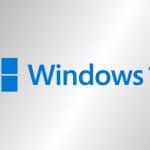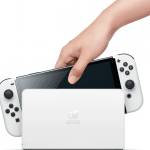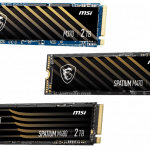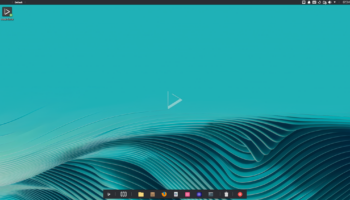How to mitigate ransomware attacks

Ransomware attacks are a type of cybercrime where hackers will use malware to encrypt computer (or network) files, locking users out of the system until a ransom is paid to a cybercriminal. Ransomware attacks have been around since the mid-2000s but they’ve made recent headlines as attacks against Colonial pipeline and the U.S. meat industry have shown that they are more than just a technology challenge, and can also significantly disrupt everyday life.
Between ransoms paid and lost productivity, ransomware attacks cost U.S. businesses an estimated $2.3 Billion in 2020 alone. The disruption caused by the COVID-19 pandemic, the popularization of cryptocurrency as a ransom payment, and support (or lack of prosecution) from foreign states have created an ideal environment for ransomware attacks to flourish.
IBM CodeFlare simplifies the move to hybrid cloud

Enterprises are relying on data more than ever before, but that can come at a cost in terms of the time spent on building and managing the infrastructure to handle it.
In order to streamline the integration and efficient scaling of these big data and AI workflows into hybrid cloud environments, IBM Research is launching CodeFlare.
Kaspersky Password Manager was generating incredibly easily cracked passwords

A need for security means that many people rely on password managers to store their ever-growing collection of login credentials. And when the time comes to create a new user account, many such tools offer a password generator to help with the creation of something ultra-secure.
Or at least that's the idea. Security consultancy Donjon found that between March 2019 and October 2020 Kaspersky Password Manager was generating passwords that could be cracked in seconds. The tool was using a pseudo-random number generator (PRNG) that was singularly unsuitable for cryptographic purposes.
An upgrade from Windows 7 to Windows 11 will have to be a clean install

Microsoft's announcements about Windows 11 have raised as many questions as they answered, primarily around the issue of system requirements. While the operating system is due for launch later this year, it is not expected to roll out as an upgrade for users of older versions of Windows until some time in 2022.
In the meantime, however, hardware manufacturers are busy preparing for the launch, as well as preparing their customers for what will be involved. Lenovo is among the companies sharing helpful details, and this includes the fact that Windows 7 users will need to perform a clean installation of Windows 11 rather than an in-place upgrade.
Why testing is vital to keep organizations secure [Q&A]
Here's what you can expect from Windows 10 21H2

We may not have an exact release date for Windows 10 21H2 -- and interest may be focused on Windows 11 at the moment -- but details about what we can expect from the update are starting to creep out.
When the Windows 10 October 2021 Update rolls out in a few months' time, it introduces a number of new features that will be of interest to anyone who is sticking with Windows 10 rather than jumping to Windows 11 -- whether through choice or necessity. Information about just what there is to look forward to has been spotted on Microsoft's own support pages.
Microsoft issues emergency patches for critical PrintNightmare security flaw

Microsoft has released a series of out of-band security patches for the PrintNightmare bug that was recently exposed. The remote code execution vulnerability exits in the Windows Print Spooler; it affects all versions of Windows, and the company is even offering patches for the unsupported Windows 7.
Previously, Microsoft had only been able to suggest workarounds to mitigate against the security problems, so it was left to 0patch to help out with a free bug-fix. But now patches are available for this serious security issue (CVE-2021-34527) that leaves systems at risk of attack.
TEAMGROUP unveils trio of USB flash drives

With cloud storage continuing to gain in popularity, flash drives have largely fallen out of favor with consumers. Maybe that's not such a bad thing, as USB flash drives are easy to lose and are susceptible to failure -- the cloud is arguably more safe and secure. With that said, there will always be a need for local storage, as sometimes you can't trust certain documents, such as company secrets, to the cloud.
It is hard to get excited about USB flash drives though, right? I mean, aren't they all the same? Actually, no! They can vary on things like build quality and performance. That's why the a trio of new USB flash drives from respected company TEAMGROUP has piqued my interest. All three drives are distinct in their designs. The speedy C212 uses a slide to protect the USB-A connector, while the M211 has a unique foldable hinge that reveals both USB-A and USB-C. The C211 is the least interesting of the bunch, as it uses an easy-to-lose cap.
Nintendo Switch OLED Model isn't the Pro console we wanted, but you should pre-order

I have wanted a Nintendo Switch for a while now. I had one years ago, but sold it as I didn't have time to play it. I justified the sale by telling myself I'd just buy another when I did have time. Then the pandemic hit, leading to scarcity. Not to mention, there have been countless rumors about a mythical "Pro" Switch that was coming any day. And so I, like many other consumers, delayed the purchase to wait for the new model.
Well, folks, the new model is official, but it is not a Pro model, sadly. Called "Nintendo Switch OLED Model," it is exactly what it sounds like -- the same console with a better OLED display. Not only is it better, but bigger as well -- 7 inches compared to 6.2. The resolution remains the same, however. Internal storage gets doubled to 64GB, while the integrated stand gets bigger and sturdier with a better range of motion. Nintendo promises enhanced audio too. Even the included dock gets a small upgrade -- it now has a wired LAN port.
The classic Symbian OS reimagined as a rival to iOS and Android

Before Android and iOS took over the mobile market, there was Symbian. Originally developed for PDAs in the late 1990s, it was the most popular mobile OS in the world for a time, powering early smartphones from Nokia, Samsung, Motorola and Sony Ericsson.
As Google and Apple’s mobile operating systems took off, Symbian OS went into an inevitable decline, and it was discontinued in 2010. But perhaps now is the time for a modern re-invention of it.
Enterprises see threat modeling as a top priority post-COVID

Threat modeling is a top priority in 2021 according to 79 percent of respondents to a new survey, yet many organizations are still falling short in taking action or updating their approach.
The research from Balanced Development Automation (BDA) platform Security Compass shows that traditional threat modeling practices are historically slow, and hinder an organization’s goals of getting applications to market quickly.
Audacity responds to concerns about its controversial privacy policy

Following yet another vocal backlash against a new privacy policy, the makers of open-source audio editor Audacity have responded to concerns, blaming "unclear phrasing" in its policy update.
While a previously proposed policy change was not implemented because of the negative response from users, it does not seem that this latest change will be halted. Instead, the developers say that it will be rectifying what it regards as poor wording, and goes to some lengths to explain the reasons for the changes in an attempt to justify them. While the type of data collected is nothing particularly out of the ordinary, the arrival of telemetry is not something that is welcomed by fans of open source software.
MSI announces SPATIUM M370, M470, and M480 PCIe NVMe SSDs

The solid state drive market is evolving very fast lately. Not only do we now have an external drive with a huge 16TB storage capacity, but PCIe 4.0-capable motherboards are becoming more prevalent. Why is PCIe 4.0 so important? Bandwidth, baby. Compared to PCIe 3.0, the new 4.0 has double the bandwidth. From a storage perspective, this means PCIe 4.0 solid state drives will provide insanely fast speeds.
Today, MSI unveils a trio of new PCIe NVMe M.2 solid state drives under its new "SPATIUM" branding. Called "M370," "M470," and "M480," one drive uses PCle 3.0, while the other two utilize the faster PCle 4.0. In other words, the company is providing options, allowing consumers to choose the speed that best meets their needs (and budgets).
Why IoT developers need access to better tools [Q&A]

Internet of things devices pose a number of challenges for developers, not least security issues and having to work with limited hardware capability.
We talked to François Baldassari of connected device specialist Memfault to find out why it may be better if IoT device developers and engineers were to have the kinds of DevOps tools that only software teams have traditionally had access to.
Audacity branded 'possible spyware' after controversial privacy policy update

Popular open source audio editor Audacity has become rather more familiar with controversy recently than it is probably comfortable with. Concerns built up following the software's acquisition by Muse Group and subsequent changes to telemetry and privacy settings. With the latest changes to its privacy policy page, the controversy continues.
Having already faced a fierce backlash and backing down a little in its plans, Audacity now finds itself hit with the label of "possible spyware" by an independent publisher covering open source software. FOSS Post even advises users to uninstall Audacity as soon as possible.
Most Commented Stories
© 1998-2024 BetaNews, Inc. All Rights Reserved. Privacy Policy - Cookie Policy.





